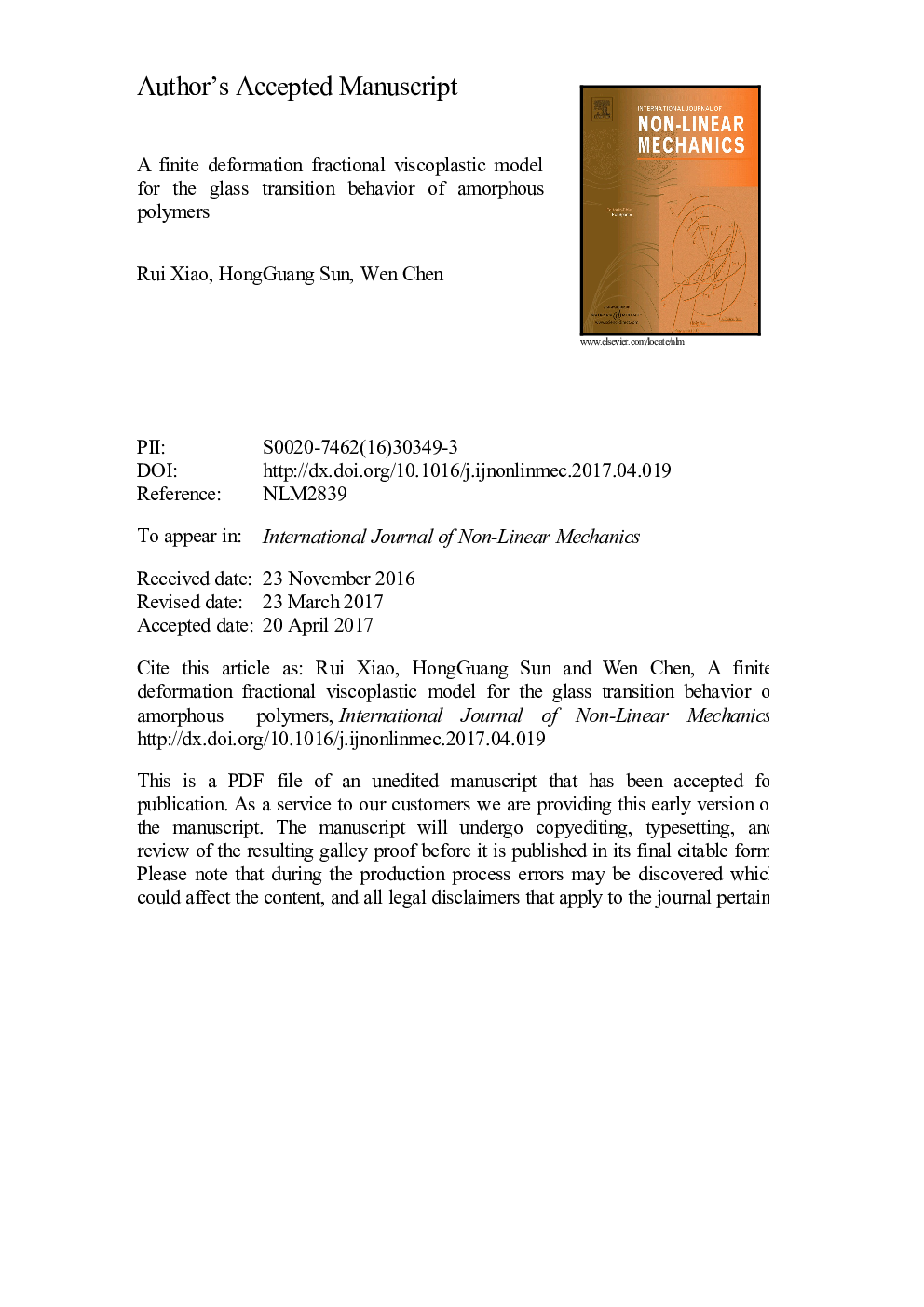| Article ID | Journal | Published Year | Pages | File Type |
|---|---|---|---|---|
| 5016525 | International Journal of Non-Linear Mechanics | 2017 | 18 Pages |
Abstract
The stress response of amorphous polymers exhibits tremendous change during the glass transition region, from soft viscoelastic response to stiff viscoplastic response. In order to describe the temperature-dependent and rate-dependent stress response of amorphous polymers, we extend the one-dimensional small strain fractional Zener model to the three-dimensional finite deformation model. The Eyring model is adopted to represent the stress-activated viscous flow. A phenomenological evolution equation of yield strength is used to describe the strain softening behaviors. We demonstrate that the stress response predicted by the three-dimensional model is consistent with that of one-dimensional model under uniaxial deformation, which confirms the validity of the extension. The model is then applied to describe the stress response of an amorphous thermoset at various temperatures and strain rates, which shows good agreement between experiments and simulation. We further perform a parameter study to investigate the influence of the model parameters on the stress response. The results show that a smaller fractional order results in a larger yield strain while has little effect on the yield stress when the temperature is below the glass transition temperature. For the stress relaxation tests, a smaller fractional order leads to a slower relaxation rate.
Related Topics
Physical Sciences and Engineering
Engineering
Mechanical Engineering
Authors
Rui Xiao, HongGuang Sun, Wen Chen,
